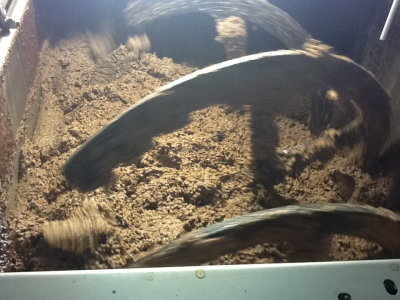Commissioning and pre-start procedures
Expertise. Various problems may arise. How do we deal with them? Troubleshooting depends on the plant and machinery installed. Whom should we contact? It is always best to ask the manufacturer to send an expert over

Started!? It all depends on the latitude, the degree of ripeness of the olives, cultivar and delivery times. Some olive mills have already started producing oil or are about to start, whereas others are still performing the necessary pre-start procedures.
Traditionally, olive mills started operating after All Souls’ Day, and although this is still true for many parts of Italy, in some areas now the harvesting and milling season starts in October, if not late September (such as for instance, in certain parts of Sicily).
These are of course delicate, critical moments, because starting an olive press and setting it into operation are equivalent to the qualifying and warm up stages in a Formula One race.
Before proceeding, we should clarify the difference between these two stages: pre-start procedures occur after the machinery has been installed or reassembled at the beginning of a new season, whereas its setting into operation only occurs later, and consists in running the machinery with the product it was designed for, namely our beloved olives.
The first time the press is started, a procedure known as commissioning, is an extremely critical moment. Commissioning is carried out by technicians of the manufacturing company, who must verify that everything has been assembled properly and that the wiring is correct before handing the press over to the purchaser. The necessary trials are performed with the machine running empty of material.
Various inconveniences may arise during its installation, so it is necessary to make some adjustments to ensure that the machine will run as smoothly as the gearwheels of a clock. Problems are the norm, so there is no need to worry if some are detected during this stage!
The motor for instance may rotate in the wrong direction, or it may be necessary to tighten some bolts, secure the feeding hopper and exit pipes, adjust the vacuum pumps or the pomace screw extruders.
It is also important to test the thermal-hydraulic system, to ensure that the press rapidly reaches the optimal temperature and the flow rate of water is adequate.
Obviously, the trials that have to be performed depend on the type of machinery installed; likewise, the problems that may arise when the press is started.
Electro-mechanical systems are simpler, so pre-start procedures are more rapid, whereas automated plants require more tests and therefore more time. In this case, it is the wiring that is critical, and most of the tests focus on the electric control panel, which is at the heart of the press.
Often the whole plant is controlled through a display, that may either be an integral part of the control panel or installed in a differed area, even in a room of its own, but always close to where the machinery is and in particular, the malaxation and oil extraction/separation units.
Some plants are even furnished with monitors allowing the customer to watch the “journey” of their olives, while sitting comfortably in the waiting room. In these cases, the plants are fitted with sensors in each unit, so the monitors display the name of the batch being processed, the temperature and malaxation time.
Whereas commissioning is carried out in the presence of a professional, all other pre-start procedures required at the beginning of the milling season can be are performed by the staff of the olive mill. The installer is only called if needed.
Only then is the plant set into operation, and this process requires a batch of olives.
The press should be turned on a few days before the milling season, so as to have some time to fix any snags.
In the case of a new pressing machine, commissioning is doubly important, for this is when the staff is instructed on how to use the machinery correctly. It is possible to ask the manufacturing company to send over an expert. Indeed, most sales contracts provide for the services of a professional, who will stay at the mill after the press is handed over for the number of days laid down in the contract and train the operator/s in charge of the machinery.
The batch of olives mentioned previously is not only necessary to check that everything runs smoothly, but also to remove the metallic taste that inevitably contaminates the oil every time the machine is started up again. This oil should therefore be discarded.
The very first time a press is set into operation it is necessary to verify that all its parts run smoothly, the milling and cleaning rates are correct, the temperature-regulating systems work, the water levels are right, oil flows out well, free of impurities and well clarified. In certain cases, separation is replaced by or integrated with filtration, and obviously, in this case the filtering systems must also be checked and turned on.
Fine tuning and regulation might have to be repeated throughout the milling season, as certain parameters change, such as for example the variety of olives milled, their degree of ripeness and the weather conditions. We will deal with these topics next time.
And good harvest to you all!
Photo by Luigi Caricato
To comment you have to register
If you're already registered you can click here to access your account
or click here to create a new account


Comment this news